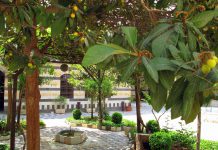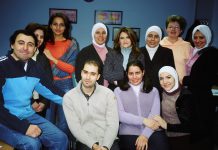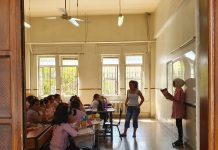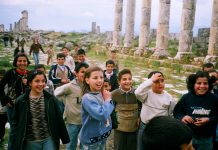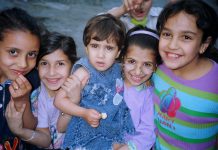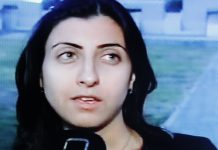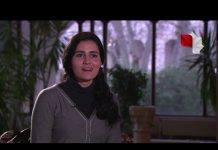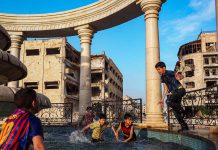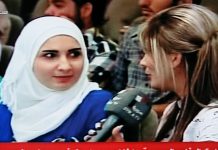Written by Chris Ray, this article was first published by Monthly Review Online, 10 January 2020
Sanctioning Syria
By Chris Ray
The United Nations was willing to pay for doors, windows and electrical wiring in Alaa Dahood’s apartment but not for repairs to her living room wall torn open by a mortar strike. That was deemed to be ‘reconstruction’—an aid category forbidden...
'Syrian School' (Part 3)
'Being Inspired'
Syrian School
Episode 3 of 5
Five-part series following a year in the life of four schools in Damascus, a high pressure crossroads in the Middle East.
It concentrates on some remarkable characters finding their way in a country that has never before opened ordinary life up to the cameras in this way, challenges the usual cliches of...
Rasha Milhem
In September 2019, on behalf of ‘Beloved Syria’, I interviewed Ms Rasha Milhem, a Syrian translator, news writer, and filmmaker. Rasha has worked for SANA (Syrian Arab News Agency), the Syrian equivalent of the ABC, since 2009. I found her to be eloquent, deep-thinking and passionate.
Having studied English Literature, Rasha is keenly interested in the arts and...
Dar Al Salam School, a private school in central Damascus, has a co-educational primary school section and a girls high school. Its principal and the majority of its staff are women.
I heard from a friend whose niece attended the school that it has a very good reputation.
I visited the school on 23 September 2019 to meet Nisreen, or 'Teacher...
SUMMARY OF INTERVIEW:
In what ways do sanctions impact on women and their families?
Dr Bouthaina explains that the sanctions against Syria are unilateral measures taken by the United States without UN approval or Security Council resolutions. “They were measures which were forced by the United States on Syria and forced on other countries to abide by….against any international law, any...
Part 1: Interview with Dr Bouthaina Shaaban, feminist and adviser to the Syrian president
Susan Dirgham - 0
In 1992, The Washington Post published a favourable review of Dr Bouthaina Shaaban’s book, ‘Both Right and Left Handed; Arab Women Talk About Their Lives’ (first published in 1988).
Dr Bouthaina was born in the 1950s and grew up in a village in countryside Homs. When the Washington Post review was published, she had a PhD in English Literature from...
October 2019
In Syrian cities and towns, it is normal for primary school students to attend a co-educational school and then for students to be streamed into single-sex secondary schools. (This isn't possible in many small regional schools, so high school students in the countryside often attend mixed classes.) Universities generally have mixed classes.
Last month, on my visit to Dar...
14 October 2019
Last month, I was in Damascus for just 8 full days. I had a journalist's visa which ensured I had the chance to interview some distinguished Syrians as well as some 'ordinary' Syrians, all of them impressive people, and most of them women.
Most evident was the fact that the war has led to women in Syria finding...
Not to be Ignored
Below is a transcript of an interview conducted at the end of 2010, when there was no thought of conflict in Syria, and the issues of the day for educated young women related to their ‘liberation’. The questions chosen were a response to the times since Ms Ayaan Hirsi Ali had recently visited Australia, where she...


